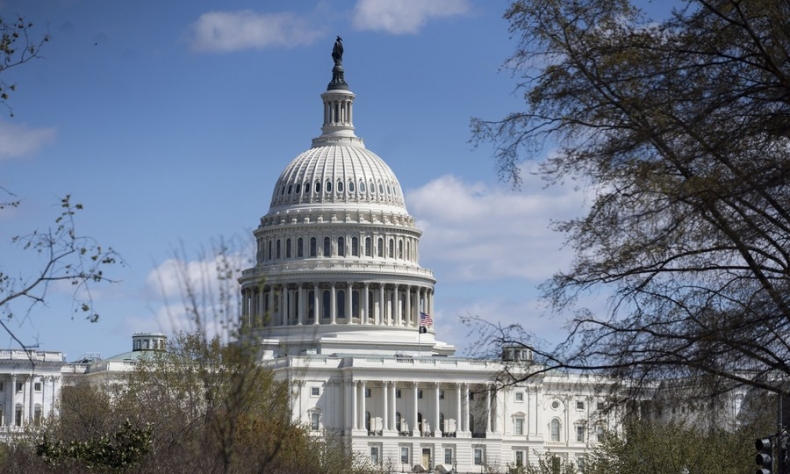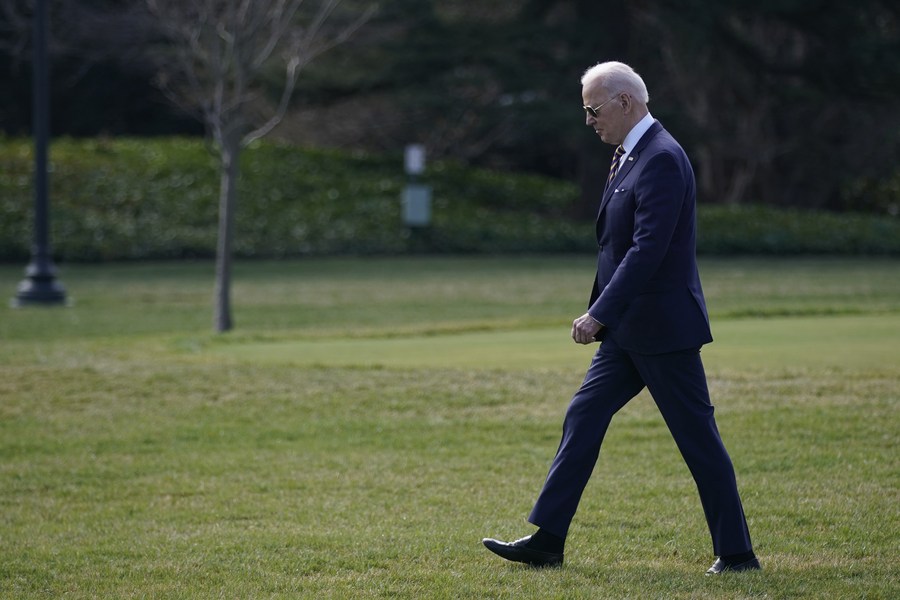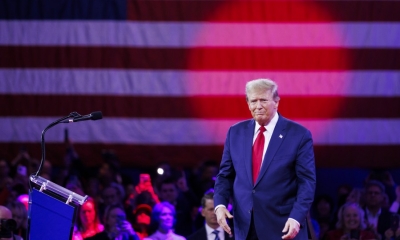America Alone in a Changing World?

Washington’s politicians must make an agonizing reappraisal of U.S. foreign policy and drop hegemonism and Cold War thinking.
The Pelosi visit to China’s island of Taiwan marks a new phase in international relations. An increasingly bellicose and irrational United States may well find itself isolated and alone as never before in a changing world that seeks peace and development.
Pelosi’s escapade occurred in the context of Washington’s proxy war against Russia in Ukraine and its empty-handed “diplomacy” in the Indo-Pacific, Asia, and Africa.
Pacific island states, ASEAN, and African states politely have rebuffed U.S. efforts to enroll them in the crusade against China and Russia.
European leaders entangled in the NATO alliance follow Washington’s diktats. The economic and social fallout from Washington’s Ukraine war takes its toll on Europe. No doubt political instability will develop as European publics experience the effects of their leaders committing economic suicide by supporting the American proxy war in Ukraine and supporting U.S. sanctions against Russia and China.
The United States lost the Korean, Vietnam, Afghan, and Iraq wars. It now appears that it will lose its Ukraine war. Did Washington become a rogue state since the World War II victory over German Naziism and Japanese militarism? Not a few scholars and observers would say so.
Does the U.S. promote world peace, cooperative diplomacy through the United Nations, and international law? It is hard to hide the fact that Washington does not, critics say.
The Pelosi whirlwind tour through Asia was intended to reinforce Washington’s anti-China policy. But no one was biting. Significantly, the South Korean leader chose to have dinner with friends rather than to see Pelosi. ASEAN members pointedly reminded Washington that they do not want to choose sides in an American zero-sum game in the Asia-Pacific region.

U.S. Secretary of State Tony Blinken similarly was rebuffed on his recent Africa tour aimed against Chinese presence in Africa. It is no surprise that South Africa took a dim view of his effort. The country is a member of the BRICS group along with Brazil, Russia, India, and China.
BRICS today is expanding its reach as a number of countries are knocking at its door seeking admission. There are good practical reasons for this because the organization supports economic development and cooperation between members in various fields. The organization respects members’ sovereign right to choose the development model most suitable to their culture.
Washington’s strategic mistakes
U.S. national strategy and foreign policy made three grave and irreversible mistakes over the past six decades: the Vietnam War, post Cold War hegemonism, the Afghan-Iraq wars. U.S. leaders learned nothing.
First, the Vietnam War which was a conflict in Vietnam, Laos, and Cambodia from November 1, 1955 to the fall of Saigon on April 30, 1975 was a disaster. The unnecessary two-decade long war caused severe U.S. internal disorder in the form of economic stagnation and inflation and in the form of social unrest. Much of world opinion opposed the war isolating the U.S.
Those of us from the Vietnam War era, and opposed to it, remember those two decades all too well.
The Vietnam War tore the U.S. apart. There was widespread antipathy and opposition to the war. The country was polarized severely and this impacted political and social stability.
Washington learned no lessons from the Vietnam War, its failure, and its 58,220 dead which included a cousin of mine.
Second, post Cold War hegemonism prevented U.S. economic retrenchment and impaired its ability to prepare for a sustainable future over the long term.
With the end of the Cold War and the dissolution of the Soviet Union in 1991, there were two options: retrench and prepare for an inevitable multipolar world or embark on a unipolar policy of hegemony.
Washington learned no lessons from the fruitless policy of hegemonism.

Third, the Afghan-Iraq wars were disasters. The late and highly respected U.S. General William Odom called these the greatest strategic mistake in U.S. history. The bill to American taxpayers reached an estimated $8 trillion. Iraq was left in a shambles with hundreds of thousands dead and displaced. Afghanistan also was left in a shambles and the Biden administration then stole $7 billion of its foreign reserves.
Washington launches new Cold War
The old Cold War was terminated through diplomacy and an agreement between U.S. President Ronald Reagan and Soviet Union president Mikhail Gorbachev. But U.S. ruling circles, during a multi-year bipartisan project, prepared the new Cold War during a series of high-level conferences.
The purpose of the policy project was to restart the old Cold War and to reestablish a bi-polar bloc system. The old two bloc system was between the “Free World” and the “Communist World”. In the United States, this bloc concept stemmed from the post World War II geopolitical design of “containment” of the Eurasian landmass.
The bipartisan “Princeton Project” was headed by the Republican George Schultz and the Democrat Anthony Lake, both former high level U.S. government officials. It released its final report to the public in 2006. The co-director of the project staff, Anne Marie Slaughter, went on to head the Policy Planning Staff of the U.S. State Department under President Barack Obama.
It is notable that this policy group included foreign participants such as Japanese diplomats and scholars as well as Australian intelligence officials. Thus, the U.S.-Japan-India-Australia “Quad” anti-China alignment and the more recent Australia-U.K.-U.S. “AUKUS” anti-China alignment should come as no surprises. The Quad concept was embodied in the late Japanese Prime Minister Shinzo Abe’s “Diamond” strategy against China.
Because the policy project was bipartisan it was logical that the Trump administration would carry it forward. Trump’s desire for better relations with Russia, which conflicted with the Establishment design, was not realized as it did not fit the Establishment’s bipartisan policy consensus.
Trump’s Russia policy idea was blocked and a phony “Russiagate” scandal was mobilized against him. Trump, however, launched trade and tech wars against China which were consistent with the elite policy consensus.

Biden continues the elite U.S. foreign policy consensus. In fact, the Biden administration pushed the consensus policy to a sharper and more intense level than under Trump or Obama before him. The explanation is simple. Throughout his career in politics in the U.S. Senate, and as the Vice President under Obama, Biden followed the Establishment’s foreign policy consensus.
So, Biden’s new Cold War policy should have come no surprise. Some foreign capitals, academics, and observers may be surprised that Biden’s policy is not more moderate than Trump’s. But after a year and a half of the Biden administration foreign policy perhaps they should reflect on any mistaken perceptions.
What is ahead for Washington?
Evidently, it is not reasonable to expect a change of heart in the U.S. Establishment and its foreign policy any time soon. The new Cold War will go on although it is a dead end for the United States and its European NATO allies. How long it takes to hit the dead end is an open question.
It is reasonable to expect that because of the inexorable shift toward a multipolar world, the United States will become more isolated if it does not drop its belligerence and its policy of hegemony. U.S. policy with its continuing features of neo-imperialism and neo-colonialism serves only to increase U.S. isolation over time.
Washington’s politicians must make an agonizing reappraisal of U.S. foreign policy and drop hegemonism and Cold War thinking. Otherwise, the American people in the future may find their country alone in a changing world.
The article reflects the author’s opinions, and not necessarily the views of China Focus.
 Facebook
Facebook
 Twitter
Twitter
 Linkedin
Linkedin
 Google +
Google +







